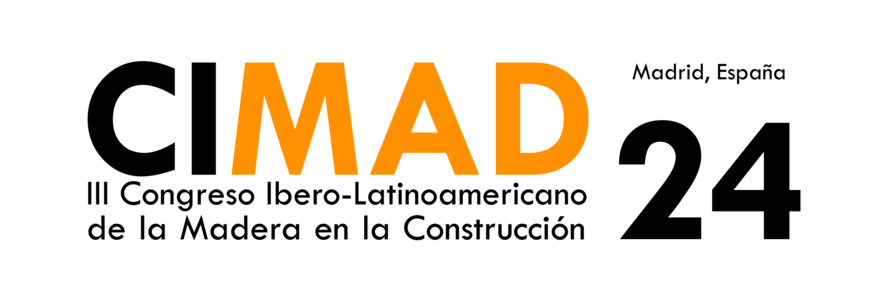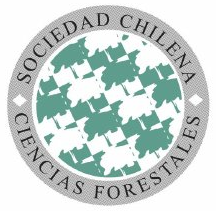Influence of pretreatment on properties of bamboo portland cement particle board
DOI:
https://doi.org/10.22320/s0718221x/2024.28Keywords:
Alkali treatment, bamboo portland cement particle board, bamboo, carbonizing treatment, hydro-thermal treatmentAbstract
Bamboo contains water-soluble saccharides and carboxylic acid which have an anticoagulation effect on Portland cement, and the anticoagulation ingredients can directly influence the hydration reaction extent. Hydration product varieties and hydration product-bamboo shaving binding interfaces of the Portland cement, and finally the mechanical properties of bamboo cement particle boards. In this paper, bamboo shavings are pretreated by carbonizing treatment, hydro-thermal treatment and alkali treatment; high performance liquid chromatography is adopted to analyze the influences of three different pretreatment methods on contents of water-soluble saccharides and carboxylic acid in the bamboo shavings; a Fourier infrared spectrometer and an X-ray diffractometer are respectively utilized to analyze the characteristic peak changes and crystallization property changes of chemical ingredients of the bamboo shavings before and after the three types of pretreat- ment. This paper discusses effects of three types of pretreatment methods in eliminating water-soluble saccha- rides and carboxylic acid in the bamboo shavings. Bamboo Portland cement particle boards was prepared using bamboo shavings, which are pretreated in three ways, and influences and mechanisms of different pretreatment methods on properties of the bamboo Portland cement particle boards were studied. Research indicates that the mechanical properties of the Portland cement particle board prepared from bamboo shavings pretreated with 3 % NaOH solution are superior to requirements of qualified products and superior products specified in the Standard.
Downloads
References
Cabral, M.R.; Nakanishi, E.Y.; Mármol, G.; Palacios, J.; Godbout, S.; Lagacé, R.; Savastano, H.Jr.; Fiorelli, J. 2018. Potential of Jerusalem Artichoke stalks to produce cement-bonded particleboards. Industrial Crops and Products 122:214-222. https://doi.org/10.1016/j.indcrop.2018.05.054
Chu, J.; Ma, L.; Zhang, J.H. 2016. The Chemical Composition of Bamboo after Heat Pretreat- ment with Fourier Infrared Spectrum Analysis. Spectroscopy and Spectral Analysis 36(11): 3557-3562. http://www.gpxygpfx.com/EN/10.3964/j.issn.1000-0593(2016)11-3557-06
Chu, J.; Zhang, J.H.; Ma, L. 2017. Study of Crystallinity of Pretreated Bamboos. Forest Science 53(2): 100-109. https://pubmed.ncbi.nlm.nih.gov/30221888/
GB. 2009. Cement bonded particleboard. GB/T24312-2009. National Standardization Technical Commit- tee plywood: RPC.
Han, S.; Zhong, J.; Ding, W.; Ou, J. 2021. Strength, hydration, and microstructure of seawater sea- sand concrete using high-ferrite Portland cement. Construction and Building Materials 295: e123703. https://doi.org/10.1016/j.conbuildmat.2021.123703
Han, Y. 2014. Study on Light Wall Material by Composited with Bamboo and Cement. Fujian Agriculture and Forestry University. Master’s thesis
Juengera, M.C.G.; Jennings, H.M. 2002. New insights into the effects of sugar on the hydration and mi- crostructure of cement pastes. Cement and Concrete Research 32(3): 393-399. https://doi.org/10.1016/S0008- 8846(01)00689-5
Li, X.G.; Zheng, X.; Wu, Y.Q. 2012. Regulation and Control of Bamboo Fiber/Polylactic Acid Compos- ite Interface. Journal of Composites Science 29(4): 94-98. https://doi.org/10.13801/j.cnki.fhclxb.2012.04.018
Shen, W.G.; Zhou, M.K. 2007. Research on Influence of Saccharose on Cement Hydration Process. Jour- nal of Building Materials 10(5): 566-572. ISSN 1007-9629
Sun, F.B.; Fei, B.H.; Jiang, Z.H.; Yu, Z.X.; Tian, G.L.; Yang, Q.W. 2011. Study on Bamboo Treated with γ Rays by X-Ray Diffraction. Spectroscopy and Spectral Analysis 31(6): 1717-1719. http://www.gpxyg- pfx.com/EN/10.3964/j.issn.1000-0593(2011)06-1717-03
Tian, X.J.; Wang, C. 2001. Research on Separation of Hemicellulose Hydrolysis Products. Journal of Northeastern University 14(2): 63-65. ISSN 2096-7543
Wu, B.; Yu, Y.; Qi, J.; Yu, W. 2014. Effects of bamboo bundles treated with fine fluffing and carbon- ized treatment on the properties of bamboo scrimber. Journal of Nanjing Forestry University 38(6): 115-120. https://doi.org/10.3969/j.issn.1000-2006.2014.06.022
Xu, H.; Lu, A.Q.; Chen, J. 2005. Research on domestic and Abroad Plant Fiber Reinforced Cement Based Composite Materials. Cellulose Science and Technology 13(4): 60-64. https://doi.org/10.16561/j.cnki. xws.2005.04.011
Xue, L.; Zhang, Z.; Wang, H. 2021. Hydration Mechanisms and Durability of Hybrid Alkaline Cements (HACs): A review. Construction and Building Materials 266(Part A): e121039. https://doi.org/10.1016/j.con- buildmat.2020.121039
Yang, S.M.; Jiang, Z.H.; Ren, H.Q.; Fei, B. 2010. Determination of Cellulose Crystallini- ty of Bamboo Culms with X-ray Diffraction Spectrum. Journal of Northeastern University 8: 75-77. https://doi.org/10.13759/j.cnki.dlxb.2010.08.036
Yu, Y.; Yu, X.; Zuo, Q.; Fu, S.; Jiang, Z. 2004. A study of the hydration characteristics of Phyllostachys praecox wood-cement-water mixtures. . Journal of Zhejiang A & F University 1: 1-5. ISSN 2095-0756. https://caod.oriprobe.com/articles/6889709/A_study_of_the_hydration_characteristics_of_Phyllostachys_ praecox_wood.htm
Zeng, K.B.; Jiang, B.B.; Chen, J.Z. 2006. Dynamics of Bamboo Material Pyrolysis Process. CIESC Journal 57(20): 318-323. ISSN 0438-1157.
Zhang, X.Q.; Han, J.Q.; Zhou, D.Y. 2010. Influence of Wheat Straw Pretreatment Method on Straw-inor- ganic Gel Composite Material. Journal of Northwest Forestry College 38(2): 45-46. https://doi.org/10.13759/j. cnki.dlxb.2010.02.005
Downloads
Published
How to Cite
Issue
Section
License

This work is licensed under a Creative Commons Attribution 4.0 International License.
Los autores/as conservarán sus derechos de autor y garantizarán a la revista el derecho de primera publicación de su obra, el cuál estará simultáneamente sujeto a la Licencia de Reconocimiento de Creative Commons CC-BY que permite a terceros compartir la obra siempre que se indique su autor y su primera publicación esta revista.




































